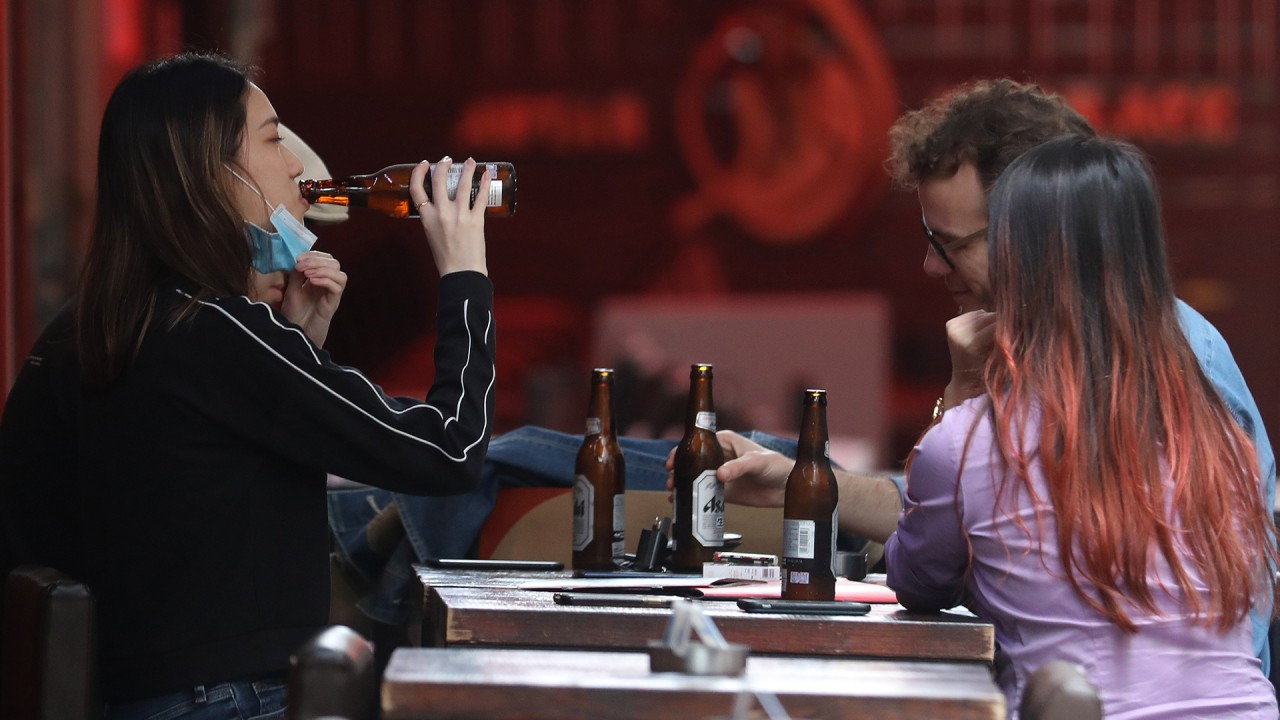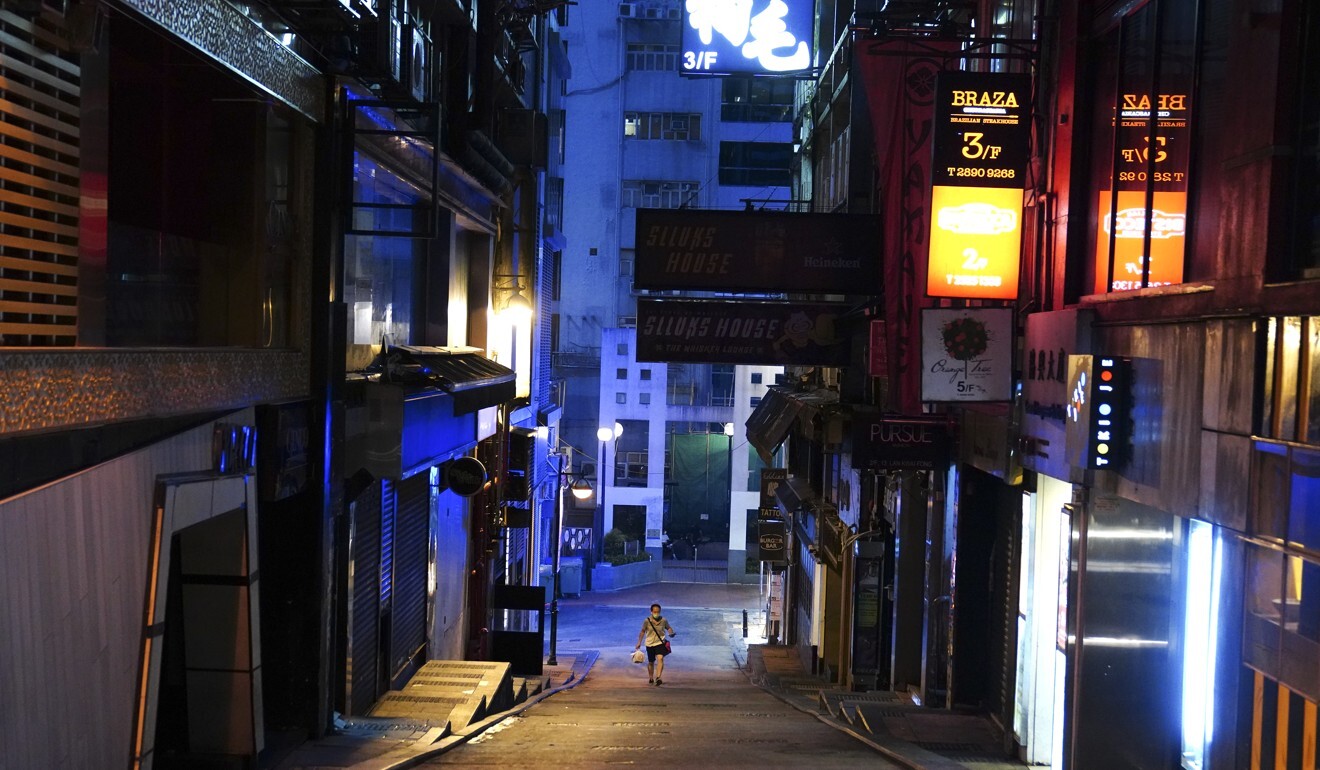
Hong Kong musicians falling on hard times as Covid-19 financial relief packages pass them by
- Working performers not always eligible for financial support from government
- Venues such as bars are not recognised under relief scheme leaving many musicians struggling
Jazz pianist Robert Mocarsky has been performing in Hong Kong for 12 years, earning about HK$32,000 a month.
“As musicians, it’s more than a job for us,” Mocarsky said. “It’s also our identity and it’s our expression, but we aren’t able to use it. We are basically useless at the moment.”
The 69-year-old single man has monthly expenses of roughly HK$25,000, including rent for his flat in Sai Ying Pun.

02:01
Coronavirus: Hong Kong orders bars and pubs to close amid Covid-19 pandemic
Reeling from the pandemic, he tried to apply for the government allowances earmarked for the arts sector, but was rejected.
“For musicians who actually work steadily in venues that people go to frequently, like bars, there are no provisions to cover that,” he said.
Hong Kong’s unemployment rate between April and June climbed to 6.2 per cent, a 15-year high, with that jumping to 10.8 per cent among workers in the arts, entertainment and recreation sectors.
Those struggling to get by have called for officials to give them more help, and relax the application criteria for an existing relief measure.
“Some funding would be good for this sector. Helping out these small businesses and small venues, ” said Christine Bowers, who found local music showcase The Underground HK in 2004. “We don’t know how long this third wave is going to be.”
Bowers, better known as Chris B, said like Mocarsky, she also failed to secure a grant from the Hong Kong Arts Development Council’s HK$55 million support scheme.
Under the programme, eligible individual practitioners needed to have their arts and cultural work programme cancelled or postponed in venues controlled by the Leisure and Cultural Services Department, or other specific premises, between January 29 and June 30.
Even, a successful applicant would be eligible for HK$7,500 at most.
Art project organisers, not funded by the development council, who had an event cancelled because of the virus could get HK$15,000 for each eligible activity. Each group or organisation could apply for the allowance for at most three projects.

However, many other places more common with pop, jazz or indie music shows, such as AsiaWorld-Expo, Kowloonbay International Trade and Exhibition Centre, and commercial galleries were excluded.
“They should allow non-government venues. People have employment contracts, they can show,” Bowers said.
The Underground interviewed 646 musicians between July 28 and August 4, and about 65 per cent of them were looking for non-music jobs, with 23.5 per cent in debt. Nearly 5 per cent were being evicted and 2.8 per cent had been made homeless.
The study found 93 per cent of interviewees were Hong Kong permanent residents, and for 61.6 per cent music was a full-time career.
“Many of the people I spoke to, said they thought musicians in Hong Kong didn't do music full time, and many others thought musicians were all non-permanent residents. So perhaps the government departments also have this misunderstanding,” Chris B said.
She added she had learned one musician was cleaning public transport to make a living, while another had taken to food delivery.
Others with an MPF account, such as guitarist Tomii Chan Wai-yan, found themselves being left out of the HK$81 billion Employment Support Scheme, which offered a one-off allowance of HK$7,500 to the self-employed.
Chan said he had set up an employee account when he taught classes in secondary schools, but the scheme required applicants to have an account dedicated for someone who was self-employed.
With monthly expenses of around HK$5,000, the 27-year-old, who lives with his parents, is able to survive.
“But if I keep being like this for a few more months, I will probably feel screwed,” he said.

